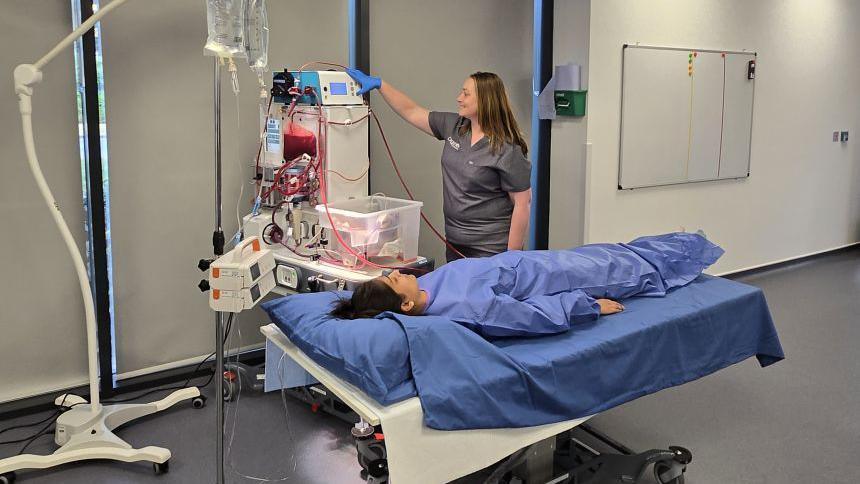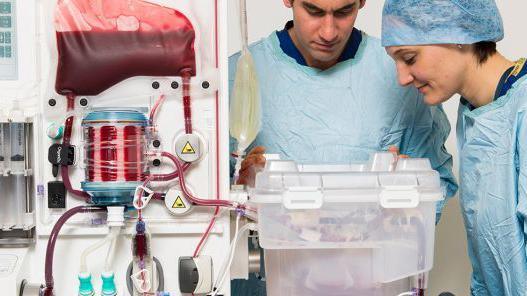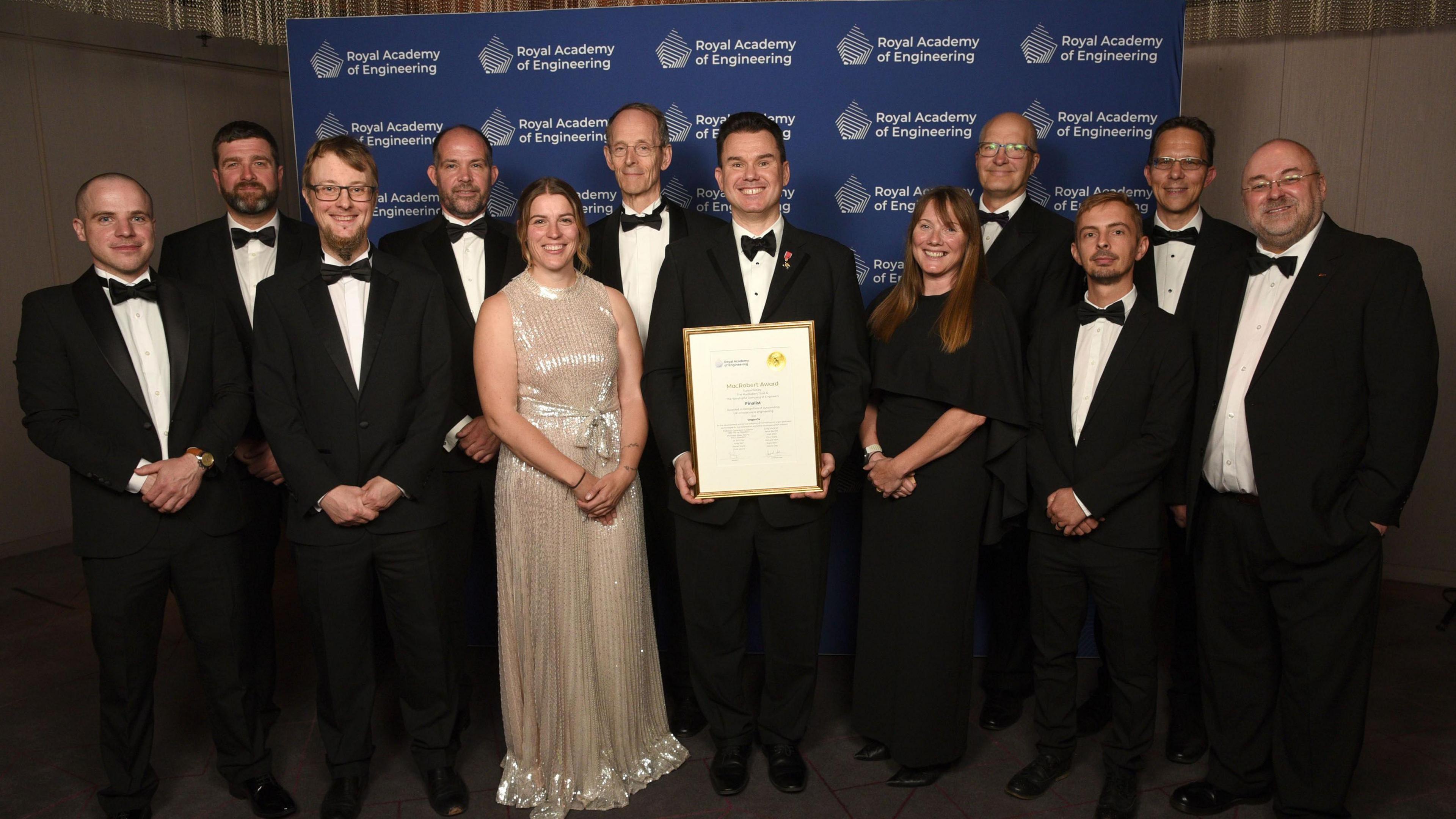'Landmark' £1.1bn sale of university company

The machine allows doctors to "test drive" organs before they are transplanted into patients, Prof Coussios said
- Published
A company that makes devices that keep organs alive outside of the human body has been acquired by a global medical technology company in a "landmark" $1.5bn (£1.1bn) deal.
OrganOx, a spinout of the University of Oxford founded by engineering professor Constantin Coussios and transplant surgeon professor Peter Friend in 2008, has been bought by Terumo Corporation, which is based in Tokyo, Japan.
The organ preservation devices that OrganOx makes have already saved 6,000 lives, according to Prof Coussios.
He said the acquisition would allow the technology to help even more patients worldwide.
"The machine... essentially recreates around the organ an environment that fools it into thinking it is still inside the body," he said.
"So blood-like substance flows through the organ at normal body temperature, the organ is able to breathe and consume nutrients normally, and that means that it is actually functioning outside the body very much as if it were still inside."
He said the technology, which has been used since 2013, allowed doctors to "test drive" organs before transplanting them into a patient.
"We have over 6,000 patients who are alive today because of this technology - about 10 patients a day and rapidly rising," he said.

The company makes devices that can keep human organs alive outside the body
He said the deal with Terumo would allow them to explore other applications for the technology, including "beyond transplantation" - and Adam Workman, Head of Investments and Ventures at Oxford University Innovation, called the deal a "landmark".
"This was always about producing a sustainable technology the world over, and I will continue to be involved with my cofounder to make sure it finds its home in helping patients around the world," he said.
Prof Irene Tracey, vice-chancellor of the University of Oxford, said the sale was "very exciting".
"It's just a fantastic story, not just for Oxford and of course for the patients and for the team, but for the UK... it just shows what we can do," she said.
She also said deals like this were good for students.
"We make it easy for them to be inspired by people like Constantin and Peter, to have professors teaching them who are serial entrepreneurs and successful ones -that's incredibly inspiring, and that, again, is what we're trying to create in this sector in the UK."
Get in touch
Do you have a story BBC Oxfordshire should cover?
You can follow BBC Oxfordshire on Facebook, external, X, external, or Instagram, external.
Related topics
- Published10 July

- Published15 March 2013